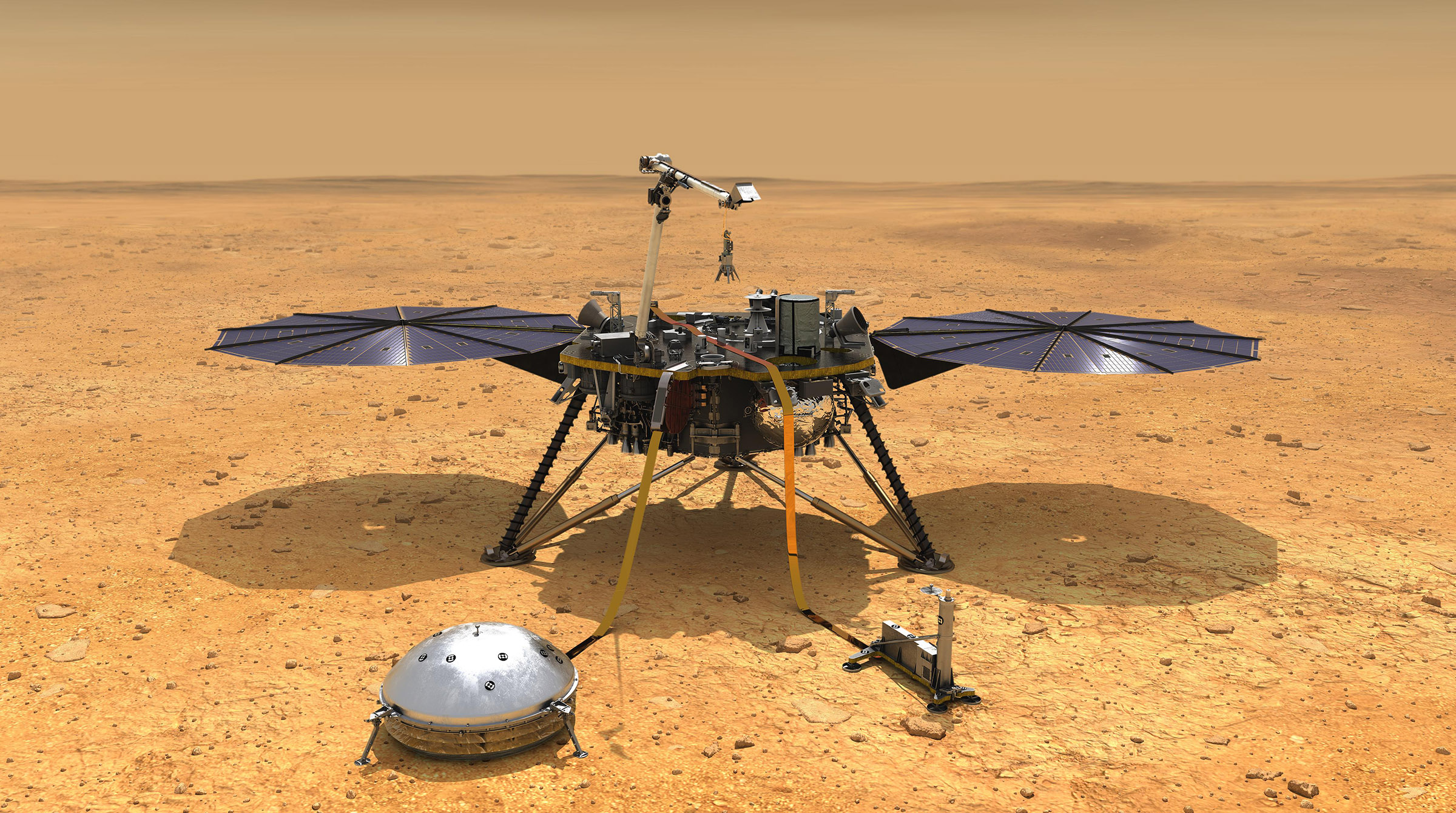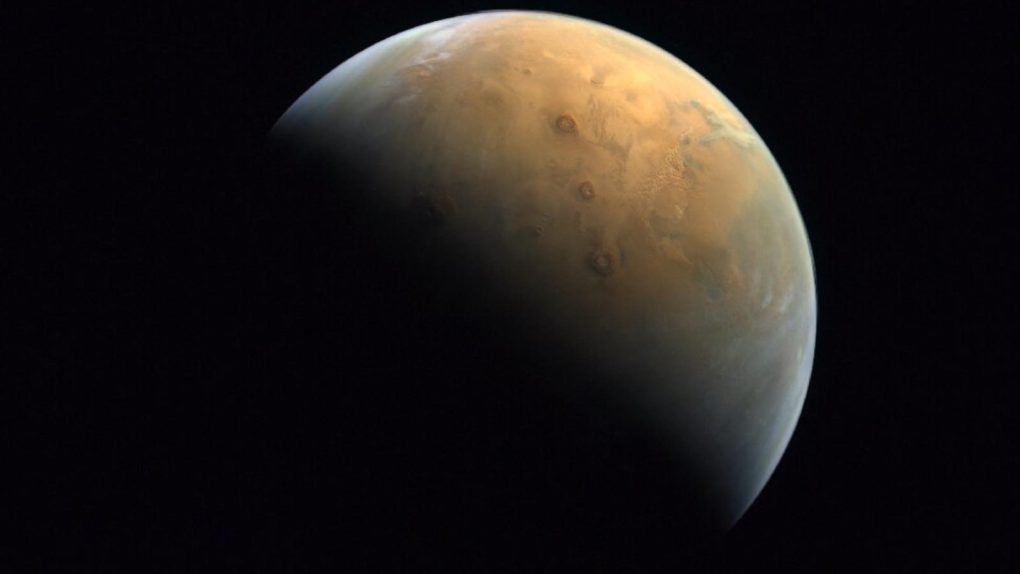New research published last month in Nature Astronomy may finally reveal more information about Mars’ catastrophic history. One of the biggest goals of the new research was to discover more about what happened to Mars’ magnetosphere, which many believe vanished sometime in the planet’s past.
This latest research relies heavily on data captured by NASA’s Insight Lander, as well as China’s Zhurong Martian Rover. The data that these two spacecraft have captured point towards some intriguing discoveries, including the fact that the Martian planet has small pockets of magnetism of varying magnitudes in different places.
These differences in the magnetism found in different places are rather extreme, too. On a normal basis, the Martian surface has an average global magnitude of just 200 nT. However, InSight recorded magnitudes of up to 2,000 nT. While that huge difference was notable, it was made even more notable when Zhurong discovered a magnitude of just 20 nT somewhere else on the planet. As such, it seems that there are parts of the planet where the magnetosphere is still stronger.

Other areas are much weaker, though, which leads many to believe that there could have been some kind of catastrophe associated with the change. And understanding how and even when the Martian magnetosphere vanished or changed is vital to the ongoing efforts that NASA and others have for exploring the Red Planet.
With NASA planning a manned mission to Mars sometime in the next decade, getting a good understanding of how the planet came to the point it is now, and even learning about the circumstances that brought it here is going to provide a lot of good information for astronomers to make use of. And if that wasn’t enough, learning all of that can help us better understand the planet as a whole.
This new discovery can be read about in detail in the paper, which was headed by researchers from the Chinese Academy of Science.








